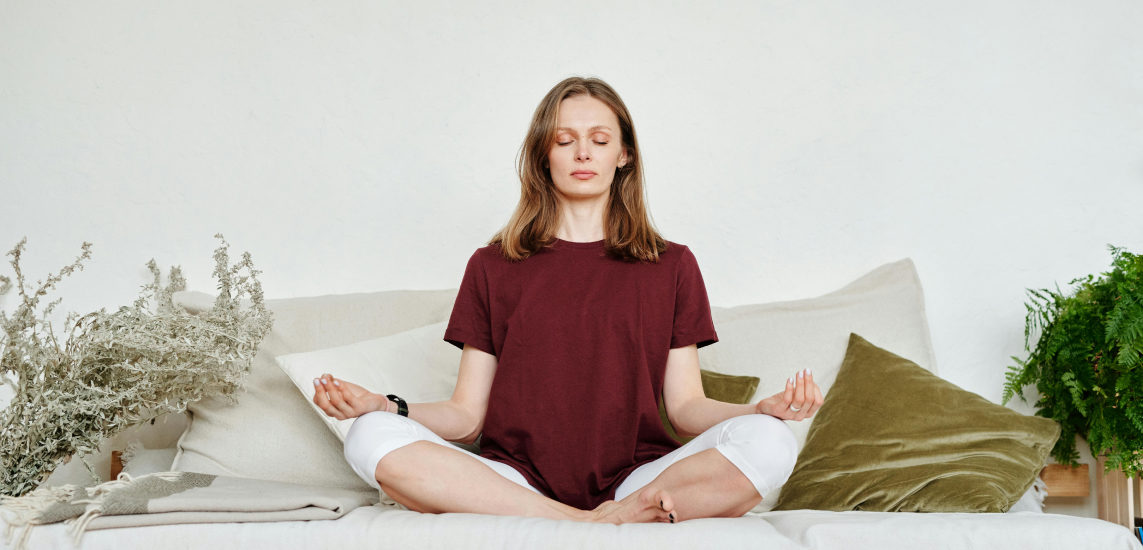In today’s fast-paced world, busyness is often mistaken for success. We hustle, juggling tasks and commitments, believing that a packed schedule equates to a life well-lived. But at what cost? The constant state of being busy leaves many of us feeling overwhelmed and exhausted, a sentiment too familiar for comfort.
While society champions the hustle, treating it as a badge of honor, it silently chips away at our well-being. Let’s dive deep into why we’re caught in this cycle, the risks it poses to our health, and how we can break free for a healthier, happier life.
Key takeaways:
- Let’s explore the dark side of our busy badges — how they’re not just harmless tokens of hard work but potential threats to our well-being.
- Discover life-changing tips on how to break free from the chains of constant busyness, ensuring you manage your time in a way that nurtures rather than drains.
- Slow living might sound like a luxury you can’t afford, but we’re here to show you it’s not only possible, it’s essential for a fuller, more meaningful life.
Escape from the relentless busyness with this guided meditation to escape busyness.
Why we want to be so busy
Being busy is often seen as a status symbol, proof of importance and dedication. Yet, this relentless pursuit, as critiqued by thinkers like Tim Kreider, can lead us to a state of time poverty, where the hour of the day is filled with activities that drain rather than enrich our lives. Our self-worth becomes tied to productivity, influenced by societal pressure and a misconceived notion that multitasking is the key to success.
- Self-worth tied to productivity: Our self-esteem gets tangled in our accomplishments. The more we do, the more valuable we feel. But this equation is flawed. Your worth is not measured by your productivity.
- Societal pressure: There’s an unspoken rule that being busy equals being in demand and successful. This pressure pushes us into a constant state of activity, often at the expense of our health and happiness.
The hidden danger of constant busyness
Living a perpetually busy life isn’t just a nuisance; it’s a threat to our well-being. The implications run deep, affecting our mental and physical health in ways we might not even realize. Here, the teachings of the Christian faith remind us to “Be still and know that I am God” (Psalm 46:10), highlighting the importance of stillness, reflection, and connection in our overly busy lives.
Mental health challenges of being too busy
The incessant buzz of activity can strain even the strongest minds.
Anxiety, stress, and burnout become constant companions, leaving us feeling drained and disconnected.
It’s essential to recognize these signs early and take steps to address them, prioritizing mental health over the glorification of busyness.
Compromising physical well-being
Our bodies aren’t designed for non-stop action. Sleep disorders, heart issues, and weakened immune systems can all stem from our refusal to slow down — or the persistent call to be at work behind a desk. Recognizing the physical toll of our busyness is the first step toward reclaiming our health.
Is my busyness productive — or destructive?
The line between productivity and mere busyness is thin yet crucial. In our ceaseless endeavor to stay busy, it’s worth asking: Are we making meaningful progress or are we just caught in a cycle of activity that doesn’t serve our deeper goals? Distinguishing between purposeful action and aimless motion can transform our approach to daily tasks, steering us towards genuine fulfillment.
Redefine your productivity: Harness the power of mindfulness with our exclusive guided meditation on mindful productivity.
How to break the cycle of busyness
Escaping the busyness trap requires intentional shifts in our daily lives. Analyzing the amount of time we spend on activities can help us understand where our efforts are truly going and what adjustments are needed to align with our priorities.
Here are 3 approaches that promise not just relief but a rebirth of how we approach our time and tasks:
Set boundaries: The power of ‘no’
Embracing the word “no” can be a profound exercise in self-respect and clarity.
By choosing engagements that resonate with our values, we allow ourselves to dedicate our resources to what truly matters. Setting boundaries is a courageous step towards a life where our commitments reflect our true priorities, echoing the insights of Brigid Schulte on the transformative power of boundaries.
To navigate this journey with confidence and find the balance between yes and no, explore our guided meditation for setting boundaries designed specifically for saying “no” with confidence. This meditation is a tool to help you establish and reinforce your boundaries, ensuring your commitments align with your true self.
Try the best mindfulness practices for everyday balance
Incorporating mindfulness into our daily routines transforms every moment into an opportunity for enhanced presence and connection, offering a much-needed refuge from the relentless pace of life.
This practice not only enriches our experiences but also allows us to approach life with greater intention and mindfulness.
It’s a shift that can turn even the most mundane tasks into lessons in presence, much like the insights we gain from engaging with tracks dedicated to mindfulness. Embrace this transformative journey and start integrating mindfulness into your everyday life, enriching each moment with presence and intention.
Reclaim your time with time management techniques
Mastering your schedule means more than ticking off to-do lists — it’s about aligning your daily actions with your long-term vision.
It involves ensuring there’s ample time for rest, reflection, and activities that bring joy and fulfillment. Here are 3 effective practices that can support better time management:
- Pomodoro Technique: This technique involves breaking work into intervals, usually 25 minutes of focused work followed by a short break. This structured approach helps maintain focus and productivity while preventing burnout.
- Time blocking: Time blocking involves scheduling specific blocks of time for different tasks or activities throughout the day. By allocating dedicated time slots for tasks, individuals can prioritize their workload and ensure they have enough time for important activities.
- Eisenhower Matrix: The Eisenhower Matrix, also known as the Urgent-important Matrix, categorizes tasks into 4 quadrants based on their urgency and importance. This technique helps individuals prioritize tasks effectively by focusing on what is both urgent and important, delegating or scheduling less urgent tasks, and eliminating tasks that are neither urgent nor important.
By focusing on what’s truly essential, we carve out space for growth, leisure, and the pursuit of passions, crafting a life that feels both productive and joyful.
Dive deeper into balancing productivity with personal fulfillment, consider exploring strategies for integrating mindfulness and intentionality into your scheduling.
What is slow living and how does it contribute to a fuller life?
Slow living is an invitation to immerse ourselves in the moment, to truly savor life’s experiences beyond the clock’s ticking. This mindful approach encourages us to pause, breathe, and engage deeply with our surroundings, offering a richer, more connected existence.
Embracing slow living isn’t about relinquishing ambition — it’s about finding balance, where productivity meets peace and where our downtime becomes just as valuable as our busy hours. For those looking to go deeper into this enriching lifestyle, discovering practical ways to embrace and integrate slow living principles into your daily routine can transform your approach to both work and leisure, fostering a life of fulfillment and tranquility.
More tools and resources for a balanced life
Insight Timer aims to support those seeking equilibrium in the busyness of life. With a treasure trove of resources at your fingertips, from guided meditations that calm the mind to enlightening talks that inspire the soul, each tool is crafted to support your journey towards a balanced, mindful existence. Embrace these tools as your allies in navigating the complexities of modern life, ensuring well-being remains at the forefront of your daily routine.
Stop the busyness. Start the restfulness.
Choosing restfulness over relentless activity marks the beginning of a transformative journey.
It’s a conscious decision to value leisure time as much as work, to prioritize self-worth over societal expectations, and to cherish free time as an opportunity for growth and connection. By aligning our actions with our core values, we can shift from a state of constant doing to being, fostering a life that celebrates peace, presence, and true fulfillment.
Dive into our uniquely crafted guided meditation to shed the weight of busyness.
- Quiet and Connected - Mindfulness Meditation Joseph Goldstein 11:40
- Gateway To Presence Tara Brach 10:31
- Mindfulness Meditation Ram Dass 18:13
- Mindfulness Meditation Hugh Byrne 15:05
- Mindful Awareness Meditation Kate James 9:39
- A Few Minutes of Mindfulness Melli O'Brien 6:40
- Mindfulness Now Joshua Canter 14:29
- Mindfulness Of Body And Breath Mark Williams 8:09
FAQs on the busyness of life
What does it mean to be busy for life?
Being “busy for life” implies a long-term commitment to a lifestyle dominated by continuous activity, where there’s always something that demands attention, often at the expense of personal well-being.
How can small business owners achieve work-life balance?
Small business owners can achieve work-life balance by setting clear boundaries between work and personal time, delegating tasks, and prioritizing self-care to ensure both their business and personal life flourish without one overwhelming the other.
Can a constantly packed schedule affect your mental health?
Absolutely. A perpetually packed schedule can lead to stress, anxiety, and burnout, significantly impacting one’s mental health. It’s vital to incorporate breaks and mindful activities to maintain mental wellness.
What are the equivalent tipping points in your own life that ought to be non-negotiable?
Identifying non-negotiable tipping points involves recognizing moments or activities crucial for your well-being, such as family time, self-care practices, or hobbies that recharge you, ensuring they are preserved against the encroachments of busyness.
What does the Bible say about anxiety?
The Bible offers comfort against anxiety, emphasizing trust in God’s plan. Philippians 4:6-7, for example, advises, “Do not be anxious about anything, but in every situation, by prayer and petition, with thanksgiving, present your requests to God.”
Is “Busy” the New Status Symbol?
In modern society, being “busy” has indeed become a status symbol, suggesting a person’s demand and importance. However, this perspective often undermines the value of rest and personal fulfillment.
How can I manage the busyness of life without feeling overwhelmed?
Managing life’s busyness without feeling overwhelmed involves prioritizing tasks, learning to say no, setting aside time for rest and activities you enjoy, and practicing mindfulness to stay present and reduce stress.
How can I manage the busyness of life and still find time for myself?
Finding time for yourself amidst life’s busyness requires intentional planning. Schedule “me time” as you would any important appointment, and use it to engage in activities that relax and rejuvenate you, reinforcing the importance of self-care in maintaining a balanced life.
References
Festini, S. B., McDonough, I. M., & Park, D. C. (2016). The Busier the Better: Greater Busyness Is Associated with Better Cognition. Frontiers in Aging Neuroscience, 8. https://doi.org/10.3389/fnagi.2016.00098
Hsee, C. K., Yang, A. X., & Wang, L. (2010). Idleness Aversion and the Need for Justifiable Busyness. Psychological Science, 21(7), 926–930. https://doi.org/10.1177/0956797610374738
Tan, S. Y., & Yip, A. (2018). Hans Selye (1907–1982): Founder of the stress theory. Singapore Medical Journal, 59(4), 170–171. https://doi.org/10.11622/smedj.2018043







